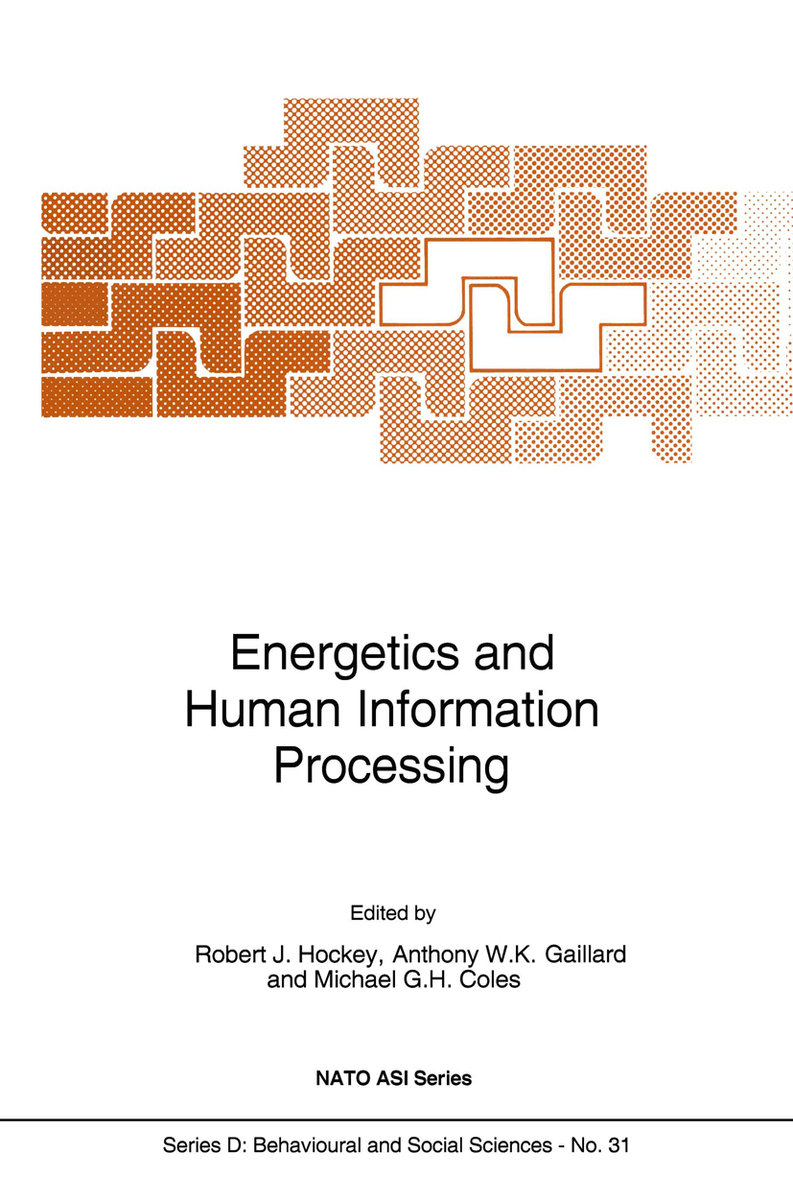The central theme of this book is the role of energetical factors in the regulation of human information processing activity. This is a restatement of one of the classic problems of psychology - that of acc ounting for motivational or intensive aspects of behaviour, as opposed to structural or directional aspects. The term "energetics" was first used in the 1930's by Freeman, Duffy and others, following Cannon's energy mobilization view of emotion and motivation. The original concept had a limited life, probably because of its unnecessary focus on relativ ely peripheral processes, but it provided the foundations for the con cepts of "arousal" and "activation" which became the popular motivational constructs of the 1950's and 1960's. Now, these too are found wanting. The original assumptions of a unitary, non-specific process based on activation of the brain stem reticular formation have been shown to be misleading. Current work in neurobiology has demonstrated evidence of discrete neurotransmitter systems having quite specific information processing functions, and central roles in the regulation of behaviour. Even the venerable curvilinear relationship between motivation and per formance (the Yerkes-Dodson law) has been shown to be, at best, an unhelpful oversimplification. On a different front psychophysiologists have found complex patterns in the response of different bodily systems to external stressors and to task demands.


